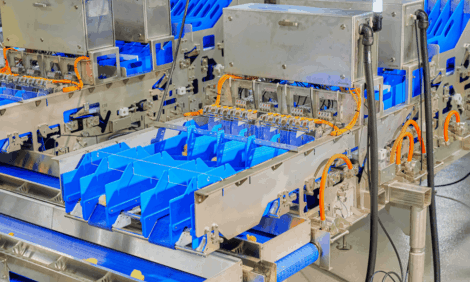



Bahamian Egg Industry 'Destroyed' by Price Controls
BAHAMAS - As the government moves to take steps to revive the egg production industry in the Bahamas, major producers are complaining that the action may be too little too late as the sector is on the brink of being wiped out altogether.According to The Nassau Guardian, Larry Feingold, owner of Rainbow Farms, said that after 50 years in business he had to sell all of his chickens in the last several months, after finding himself consistently losing money due to price controls that he said have encouraged local customers to look abroad, whether the product is cheaper or not.
"It embarrassing. I've been in business for 50 years and now I've had to shut down because someone who really doesn't understand how the business works is setting the prices," said Mr Feingold, who added that "it's almost too late" for anything to be done to save the sector.
"The last three years I've been losing money on every case I produce. Sunshine Farms closed down a few years ago for the same reason and I wish I'd got out of it then when they did because I would have saved a lot of money. Egg production was the only agricultural item that The Bahamas was self-sufficient in at one time, but the two-tiered system of price controls that were introduced eight years ago destroyed the industry," he said.
Rupert Roberts, president of Super Value, said that the Minister of Financial Services Ryan Pinder met with him and others in the grocery retail and wholesale industry in January to discuss their views on the feasibility of encouraging a re-emergence of egg production.
Guardian Business understands that the government has been advised by major retailers that its effort to help revive the egg production industry in The Bahamas will fail unless producers and retailers are allowed a higher mark-up on the sale of the product that covers costs.
"I told him the egg farmers and supermarkets subsidize the price of eggs and production to the public, and it wasn't fair, and it failed. I told him they had to give the farmer his cost plus let him earn a living and give us a 25 per cent gross margin so we can push it. Our expenses are 25 per cent, so how will we live without that?" said Mr Roberts.
Explaining how the two-tiered system of price controls had led to losses for his company, and others who have gone out of business in recent years, Mr Feingold said: "In their wisdom when they put it in they put a two-tiered (price control) system in around eight years ago, with one mark up for the producer and one for the retailer and importer. We're locked into the price they set - at B$51.15 per case. The retailer is allowed to mark that up 10 per cent, so his gross profit is like B$5.10. If that same retailer goes to the US and buys eggs, let's say he pays $55 a case there, and then when he pays the freight duty and other costs it costs him B$60 - B$61, he's allowed to mark it up 10 per cent a case, so he makes B$6 a case, so the incentive is for him to import foreign eggs. Not because they're cheaper.
"So who's getting hurt? The consumer. They are paying 15-50 cents per dozen more for foreign eggs rather than local eggs. But the supermarkets are making more, so they don't care. They keep saying retailers go to the US to buy it because it's cheaper, but this is not the case."
Mr Feingold said that notwithstanding any new government initiative, the problem is that those who have suffered under the old system now lack the capital to resurrect their operations. Rainbow Farms had employed around 12 people, but now retains only "a couple", said the businessman, adding that he had made it known to the relevant authorities before he downsized that the regulations were set to put him out of business.
"We had over 100 customers, we'd deliver a fresh product everyday. There's no way the imported eggs meet the freshness of our product. They don't understand and they don't care," said Mr Feingold.









